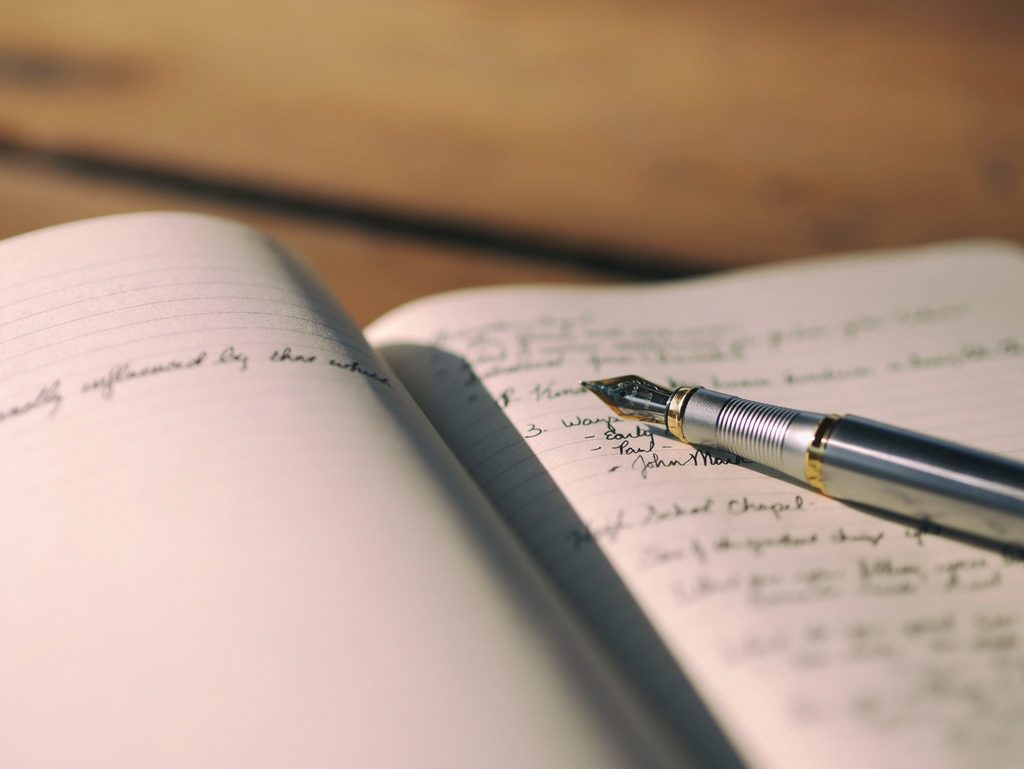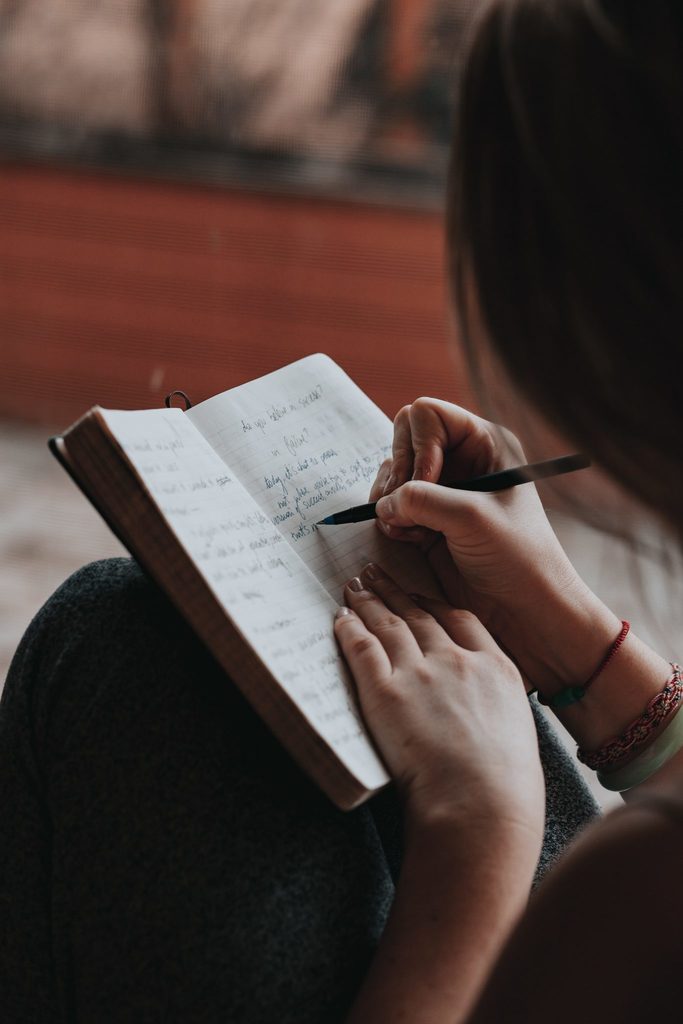I believe that the key to creative leadership can be found through journaling.
It is when we press our thoughts into the pages of a journal, when we take a moment to sit and reflect, that we are truly able to give ourselves the opportunity to learn. The opportunity to grow.
It is through reflection, research has suggested, that we experience wisdom. Researchers from Harvard Business School suggest that it is through deliberately thinking back to an experience, and processing these thoughts, that help us to learn and gain the most insight from an experience. This research supports the idea that it is through writing down the events of the day in a journal, through thinking back to them, through processing it in this way, that we can take the most from our experiences.
There are many positive benefits that come with journaling, and I have significantly noticed these changes myself since making it a daily practice six months ago. In this blog I share with you how when we journal, when we routinely take out the time to record our thoughts and really sit with them, we are allowing ourselves to bring our braver and better selves with us to work.

Journaling increases our optimism
An optimistic mindset helps us to thrive as leaders: it makes us want to take risks, it makes us more supportive of our team, and it helps us to show up with enthusiasm and energy. Without believing that great things are possible, things fall stagnant.
So how does journaling make us more optimistic?
Journaling does not have to simply be writing down the events of the day. One part of journaling that I have found very useful is expressing gratitude. I will write down five things I am grateful for. This could be to do with your work, with your daily life, or it could be things that are going well in the world. By writing down and focusing on things that are going well, through being thankful, we can begin to feel abundant. Feeling abundant, and being thankful for what we have, attracts abundance.
Research has supported the idea that practising gratitude increases our sense of well-being. When we look after our own wellbeing in this way, we have more time, and more care, for helping others to look after and prioritise their wellbeing too.
Getting creative
A journal does not have to just be written, but can be visual too. Inside your notebook you can create vision boards, a space where you include all the things that you want in life. This could be a state of mind, for example ‘clarity’. Then you can write down what it is that you can do, the steps and actions you could make, to help you achieve this goal. Add images of what makes you think of this, for example a clear blue sky.
When you put it down on paper you can be reminded of your goal each time you open your journal. When you are thinking about your goals, and visualising how you might achieve it, you can begin to manifest it.
If you have less time, another way we can journal is through writing affirmations. If you only have time for five or less minutes of journalling then this helps you to set up your day in a positive way. By writing down three things that you desire as though you already have them, in the present tense, you allow yourself to feel as though you already have what you wish for.
When we write down positive things about ourselves, things that we like about ourselves, we can feel more fulfilled, more brave, more confident. It is a way to help us start to believe in ourselves.

It is a way that we can practise and prioritise self-care
Having a space that you routinely come back to, where you check in on yourself, where you can fearlessly share any worries and goals, is the ultimate kind of self-care.
It is stopping for a moment and allowing yourself to be there for you.
Writing a journal is like writing a letter to yourself. You are pressing down your deepest thoughts, the worries that you want advice for, the fears that play on your mind onto paper. But instead of sending it off for a friend’s response, you keep it, you sit with it, you look back at it. As you write the next day, you might even find yourself responding to your thoughts from the previous day.
In this way, you are able to build your skills as an empath. You can support and be there for yourself as you would for a friend, you can be there for you. Showing yourself kindness in this way is an act of self-love, an act of realising how important your emotions, fears, and goals are. When we realise this, we can both work on and understand them.
Journaling encourages a daily routine
Having a daily routine is also an important part of self care. Instead of the checking your phone as the first thing you do when you wake up, checking in with yourself can be a really powerful way to start your day. Other ways you can integrate it into a morning routine is to take your journal with you on a morning walk.
I make sure that journalling is the last thing that I do before I go to sleep. It means that when I write down the things that are on my mind, I do not go over them while trying to sleep. I know that they are in my journal, and that I can come back to them another time.
This helps me to sleep better. It helps me to have a clearer mind. Research has supported this by suggesting making a list of things we are grateful for helps us to have a more refreshing sleep.
Prioritising journaling as part of a routine encourages you to make it a daily habit, and when we do that, we are also making self-care become a daily habit. It is not something that we should have to fit around other things, but make other things fit around checking in with ourselves. When we do this, we can show up in a way that is whole, informed, and we know how we are feeling.

Journaling as a leadership tool
I am talking about self care as an important part of leadership. I believe that it is when we look after ourselves, when we really know ourselves, when we take time to simply be with ourselves — it is then that we can really be there with others. It is then that we can empathise with others, that we can work as a team, that we know how to be there for others in challenging situations. We know because we have worked through it ourselves, and we can now help to support others.
If you have enjoyed this blog, and taken something away from it, then I would encourage you to check out these other blogs of ours that make us think about how we can be there for ourselves, and consequently, be better leaders.
- What courageous leadership looks like in practise
- How to find motivation by connecting with nature
- 6 outdoor trips for your mental wellbeing
Do you take the time to journal? Or do you have any tips on how to build leadership skills? Let us know in the comments!



